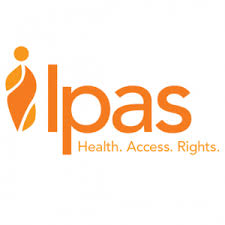In support of the updated Every Woman Every Child Global Strategy for Women's, Children's and Adolescents' Health (2016-2030), from 2018-2018, Ipas worked 18 countries or regional offices in Africa, Asia, and Latin America. We also partnered with the Ipas Development Foundation (IDF) to implement activities in India and maintained a presence in several additional countries where we train and equip health-care workers and systems and work with partners to provide safe abortion care.
- Ipas’s interventions averted an estimated 389,029 unsafe abortions globally and 592,419 unintended pregnancies. A total of 731,261 women and girls received abortion services at Ipas-supported.
- Ipas expanded its support to health workers and access points providing safe abortion and contraceptive services. Specifically, we supported over 1,000 additional health facilities (from 5,384 in FY18 to 6,408 in FY19). This included supporting health systems for the first time in four countries—Pakistan, Indonesia, DRC, and Côte d’Ivoire—and expanding interventions in established country programs (India, Nigeria, and Ethiopia, in particular). Additionally, Ipas programs in Nigeria, Kenya, and Nicaragua expanded their support to 250 access points outside of traditional health facilities where medical abortion (MA) drugs are provided directly to clients for self-use, such as pharmacies and drug shops.
- Ipas trained or oriented 6,019 health workers to provide CAC, postabortion care (PAC), and/or contraception. Ipas expanded to new access points while maintaining existing intervention facilities; we must both train new providers and continually provide refresher trainings to an ever-growing provider base and to address provider attrition and transfers.
- The majority of trainees (64%) were midlevel providers, who are able to reach large numbers of women.
- Among women for whom we have age data, 40% of abortion procedures in Ipas intervention sites were for women aged 24 or younger; of those, 8% were for patients under the age of 20.
- Ninety-two percent of all procedures (PAC and induced, before or after 13 weeks gestation) at Ipas sites (for which method is known) were performed using WHO recommended technologies.
- Eighty percent (586,547) of all women who received abortion care at Ipas intervention sites (among women for whom we have contraceptive data) accepted a modern contraceptive method before discharge. 2,009,973 women received contraceptive services as postabortion contraception or through Ipas-supported standalone contraception programs. Ipas’s efforts in contraception have impact beyond the figures presented. Long-acting and permanent contraceptive methods (LAPM) provided in FY18 had carryover impacts into FY19, and these impacts will continue to accumulate over the course of our strategic plan. For example, a 10-year IUD provided in FY18 will contribute to averting unintended pregnancies and unsafe abortions in future years as well as in FY18.
- In partnership with community organizations, Ipas reached 1,031,601 people through 15,086 activities. Of all activity participants, 18% were aged 19 or younger.
- Ipas worked with partners, including UNFPA, special rapporteurs to the UN Human
Rights Council, OAS, CSW, CEDAW, and government ministries, to achieve 188 policy
outcomes that promote access to abortion for women and girls.







